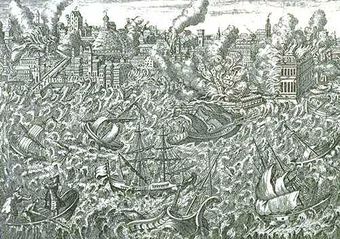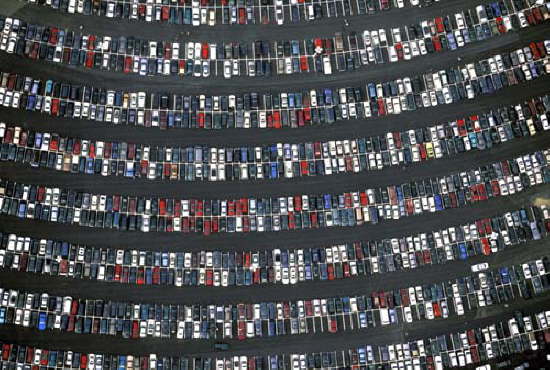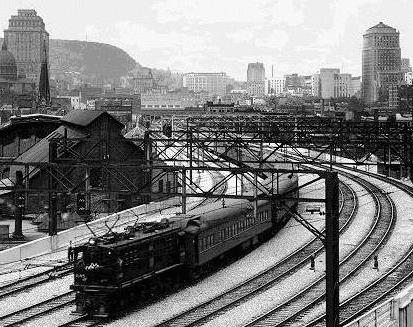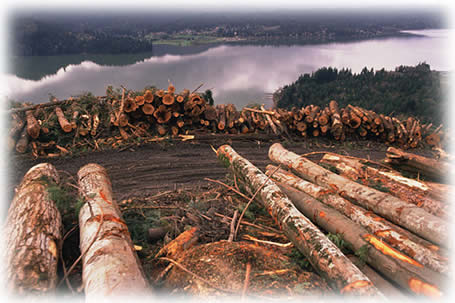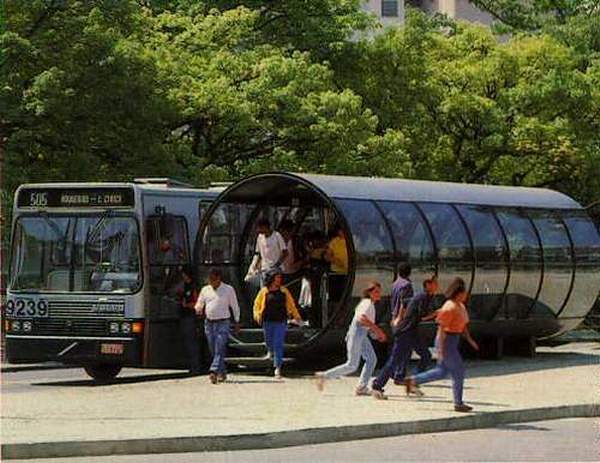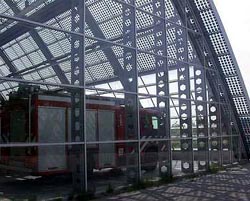


|
|
| Feedback |
|---|
Real Resources Review: A little makes a lot?I sent John Busby's 7th August article to a friend who understands more about nuclear power than I do. His reaction was that 'Mr Busby is not conversant with the concept of pebble bed reactors'. I would like to ask Mr Busby how he views that technology and whether he would care to tackle it in an article for the uninitiated like myself? Kind regards, Paddy Imhof
The problem is that mining of uranium is running down, whatever form of reactor is envisaged. See Die Welt which reports the imminent closure of some of the French reactors due to fuel shortages. The thorium alternative and fast breeders are dependent on vast development programmes which with the rapid and progressive failure of the nuclear industry will never be funded. As far as the pebble bed reactor is concerned it depends on the integrity of the pebbles and as these contain graphite this is likely to lead to the demise of this technology. The seven UK AGR's are likely to close prematurely as the graphite moderator blocks are disintegrating due to the irradiation which causes structural breakdown. Also there is an overheating due to the Wigner Energy effect which leaves a residual heat in the graphite. The gas-cooled fast reactor is also an unlikely candidate for funding for this reason as it relies on graphite moderation. The nuclear lobby in desperation is arguing that uranium can be extracted from the earth's crust and seawater and looks to fast breeders to generate ever more plutonium. All of which is fantasy. We do not have to wait too long for some of the
lights to go out in France, which will hopefully lead to a reality
check! |

| Surviving the Era of Peak Automobile, part II: A Solution |  |
 |
| By Jon Rynn | |
| Nov/02/2006 | |
|
My restatement of Al Gore’s quandary is the following: the minimum that must be done is to replace the automobile with rail as the center of the transportation system, and to replace fossil fuels with wind and solar as the center of the energy system: any solution that is proposed that does not include this solution is not a serious attempt to solve the crises. But such a solution is completely unacceptable politically. This is one of the few times in human history when the large problems confronting us are not immediately apparent. We face long-term, exceedingly complex issues now. As I have tried to argue in this space, the manufacturing decline of the U.S. will lead to the collapse of the American economy. The enormous trade deficit of the United States should give pause to most clear-thinking people; most mainstream “experts” don’t get it[4] blinded as they are by the ideological spider web of neoclassical economics. The problems of global warming, particularly after Hurricane Katrina, are becoming more difficult to dismiss. Similarly, one might think that oil at $60/barrel might make the idea of Peak Oil seem more plausible, but even such an obvious idea has been more or less shut out from the mainstream media. The mantra that “oil supplies are tight” and there is “greater demand from China” is about all that is needed to put people back to sleep. Reading, Writing, and IndustryPart of the solution must involve constructing a high level of “ecological/industrial” literacy.
The dominance of the idea of the perfection of the market leads to an inability to consider long-term problems or solutions. If the market will “solve” everything, then why worry? Once the problem becomes clear, the market will move to the most efficient solution. And if disaster strikes…well… Voltaire’s Candide was due in part to his reaction
to the destruction of Lisbon in a large earthquake in 1755.
Philosophers were so enamored with the idea of things happening for
a reason, that they argued that the earthquake’s leveling of a third
of the city had made the job of renovating Lisbon that much
easier.[6] Our latter-day Panglosses can’t prevent “acts of nature” but they could try to offer alternatives to “acts of man”, preventable only if the government intervenes in the economy in a very large-scale way. If we wait until the market takes care of it, it will be too late. Sometimes, large groups of people have to understand a problem and collectively act in a coordinated and planned way. This is one of those times. Oil, the two-edged industrial swordThe first reality to be confronted is the problem of oil.[7] When oil runs out, not only will there cease to be a readily available fuel for automobiles, trucks and airplanes, but the large scale use of pesticides – and in the case of natural gas, fertilizers – will make our modern agricultural system unusable. Petroleum is an almost perfect fuel for all kinds of transport vehicles, especially for a small-scale vehicle such as the automobile. Petroleum is easy to transport in ships or trucks; won’t work overtime to escape a container as hydrogen will; is very compact (unlike hydrogen and natural gas); is not as explosive as hydrogen; and up until now, has been found in underground reservoirs that often don’t even need pumping. Nature handed us a miracle substance, and we have spent the last century burning most of it. Half of that burning has occurred in automobiles. The automobile is horrendously inefficient from a society-wide point of view, because the automobile is a piece of equipment that sits around doing nothing for most of its existence. When we say that a factory runs efficiently, we mean that the machinery inside the factory has been running reliably, with a stable output, and without interruptions. If factories used their machinery for as little of the day as most cars, our economies would crash. On top of this, when the automobiles are running, they usually carry only one person. The sight of an SUV occupied by one person has become a telling one in the United States, highlighting complete apathy towards either transportational or energy efficiency.
A much more efficient way to run a transportation system is to use a larger vehicle, for as long each day as possible, carrying as many people as possible. This is what buses and trains do in a public or mass transit system. Unlike the case of the private automobile, the drivers are well-trained and the vehicles are constantly maintained, ideally, at peak performance. Virtually no people are killed, versus the 40,000 killed each year by automobiles in the U.S. Best of all, all of these vehicles can be run on electricity, and the electricity can be made without emitting carbon dioxide. Ship of FuelsBut wait a minute! Surely I must be insane – even if the logic is impeccable – because the implication is that our transportation systems should be based on something other than the automobile. Surely some other fuel can be found to replace petroleum? Not cheaply enough to keep the automobile at the center of the transportation system. Much is made of tar sands, oil shale or the other types of “unconventional oil”. Calling these fuels oil is like saying that I have a cup of coffee after it has spilled into the ground. Technically, I do have a cup of coffee. It’s just that it would cost a few hundred dollars to turn it back into something I could use. In the case of unconventional oil, nobody is claiming that it can be coaxed out of its rock at anything close to 10% of the global rate of oil use per day. Turning coal or natural gas into fuel for vehicles would lead to a fairly quick depletion of coal and natural gas, and even those fuels would be considerably more expensive than what we have been used to. Much of the fuel so obtained would be used, as in the case of unconventional oil, to make the fuel in the first place.[8]
Biofuels, crops grown for fuel, are problematic for many of the same reasons, plus the additional one that, as Lester Brown fears, much of the farmland used to make fuel will be at the expense of the poorest people on Earth. The survival of the farmland, in turn, is being threatened by the overuse of the land, which a biofuel regimen, one may suppose, would make even worse.[9] Finally, hydrogen, as has been touched on, is very voluminous, leaky, explosive, and at present, very expensive. The reason we can’t just grab it out of the air is that hydrogen escapes into space, and if it weren’t for plants holding the hydrogen atoms to Earth, we wouldn’t have any water (or life).[10] Hydrogen is not easy to work with. The Automobile is dead, long live the automobileThe internal combustion engine as a mass device is probably doomed, and with it, the modern, powerful, long-distance automobile will be doomed as well. If fuel becomes scarce, what there is of it will be saved for emergency vehicles – police, fire, ambulances – and for the military. A rational use of oil would also be to make recyclable plastics and other feedstocks, such as nonpolluting petrochemicals, eventually to be replaced by oil created from plant waste (cellulosic ethanol ).[11] The automobile could survive as a light, relatively slow, relatively close-range electric vehicle, assuming a robust renewable-based energy grid. For long distance movement, including for freight: rails and buses will have to provide the backbone. However, as a very well-respected, pro-transit transportation expert advised me, “Never say you want to stop people from driving their cars, say that you’re trying to give them more choices”. So a massive transit system would have to be built alongside the automobile/highway system, ready to work with small electric cars, with unpredictable ridership for the rails and buses. Unpredictable, that is, until the oil starts running out or society becomes truly concerned about global warming, or both.
There are many innovative public transit ideas, both from existing and theoretically systems. Curitiba Brazil has a rapid bus system that allows buses to use their own lane, changes lights to help speed buses along, has fewer stops than in most other systems, and uses raised bus stops.[12] There are proposals for light monorail systems that are elevated,[13] and light rail systems made from vehicles that are fairly small, independent, and run when people call them, like an elevator.[14] Another category of vehicles that might replace automobiles entirely, could be people-mover systems (or personal rapid transit ).[15] High-speed trains spread throughout the world would mean that airplanes would need only be used to cross large bodies of water, thus vastly reducing another source of fuel use. Continental Europe has been built with a relatively small suburban infrastructure, so it would be easier for Europe to switch to a dense network of rails with various small scale electric automobiles, or it may be possible in some areas to simply use bicycles or other human-powered vehicles, augmented with small motors as needed. In the U.S., of course, with its vast suburbs, either a certain amount of centralization of the population back into towns and cities will have to take place, or a larger system of electric cars/people movers, or both, would be necessary. It is hard to disagree with James Howard Kunstler’s conclusion that the American complex of suburbs, roads, and malls, what he calls the suburban-industrial complex, is the biggest waste of money in human history[16] -- except , maybe, for the American military -industrial complex. Earth, Wind and SolarThis whole picture – replacing fuels with electricity and replacing big cars with small cars and rail – hinges on the ability to make the electricity system sustainable. The other two main fossil fuels – coal and natural gas – not only have their own sets of problems, but both fuels are more regional . Because oil is so transportable and contains so much energy, it is relatively easy to move it to wherever it is needed – although where oil comes from is the stuff of modern geopolitics. Natural gas is, for all practical purposes, restricted to transport over land. Natural gas, like oil before it, will deplete globally as it is happening now in the U.S. But the Americans have large deposits of coal which will eventually run out, particularly if used to replace oil and gas; it has the added problem of being very dirty and carbon heavy. Some have advocated pumping the carbon dioxide waste underground. That means, among other things, that the electrical grid should be of the highest quality, so that if coal is used and the carbon “sequestered” underground, the electricity will easily get to the rest of the country. It may be that the quality of the electrical grid will be critical to an electrified transportation system and therefore to a sustainable economy because of the scattered nature of the two most important sustainable energy technologies, solar and wind. According to a study at Stanford University, there is enough energy available from wind for all of our energy needs, not just electric. However, much of this wind is in remote places like North Dakota.[17] Similarly, some have claimed that the Mojave desert could provide enough energy from solar energy to power the entire country,[18] which points to the uneven distribution of solar energy as well. Since so much electrical power is lost from transmission, it would be critical to have highly efficient electrical grids. Cultivate your garden, Candide
Besides obtaining electricity from remote areas and transporting it, we could also build a sophisticated local set of energy systems, all different, depending on the local circumstances. The first order of business would be to follow the example of Japan and Germany and mandate the government to install solar energy systems on a large set of buildings. This should be followed by plans to install solar energy systems on all buildings, on as much of the surface as possible. Judging from the Japanese and German experience, mass production will lead to massive reductions in cost of solar,[19] as well as wind. The alleged “market” for energy is full of subsidies, even for oil, so it is absurd to not use wind or solar because it is a few cents per kilowatt/hour more expensive than coal or natural gas. To wait for the market to use solar and wind would be to drive civilization off a cliff because of a suicidal attachment to a harmful market-centered ideology.
Wind power, it appears, may be able to provide more power ultimately than solar – like trees – they need deep roots – and they are more like trees in a rainforest, because they need to be as high as possible, or objects below them will lessen the amount of wind that can be captured for energy. Thus, it may be that each neighborhood could have a large windmill, or maybe each town or city would have to have a wind farm or farms located at some distance, dependent on an efficient electrical grid to make such systems practical. The big problem with wind and solar is stability of supply. This will require a more decentralized resolution, one adapted to local conditions. A certain percentage of daily electrical generation from solar and wind could go into local generation of hydrogen and hydropower potential from pumping water up a water tower. When needed, the hydrogen could be used either for household fuel cells or to directly power a furnace or tiny turbine, and falling water could be used from a water tower to generate electricity. This all assumes that, not only will the transportation system be much more efficient than it is now, but that household and factory energy consumption will be much more efficient, in terms of appliances, heating, and cooling. The government will have to intervene and enforce efficiency and not wait for the market to do the right thing. To dream the impossible dreamThese transformations need to be done soon and need to be done globally rather than nationally, particularly if the continents are to be spanned by electrical and rail grids. The implication of this logic is that a global political party should be established, whose main goal would be to put rail at the center of the transportation networks and solar and wind at the center of energy systems. Perhaps the symbol of the party could be the famous picture of the soldiers planting the flag on Iwo Jima, except that instead of a flag, they could be erecting a windmill. One might use Barak Obama’s phrase, “The audacity of hope”,[20] but I would rather use Frank Zappa’s phrase, “unmitigated audacity”. How about the Insanely Rational Party? You can contact Jon Rynn directly on his jonrynn.blogspot.com . You can also find old blog entries and longer articles at economicreconstruction.com. Please feel free to reach him at This email address is being protected from spam bots, you need Javascript enabled to view it .
[2] From “Our Ecological Footprint: Reducing human impact on the Earth”, 1996. [3] According to Dr. James Hansen, see the following link . [4] Recently Gabor Steingart, writing in Der Spiegel , wrote on the coming dollar collapse . [5] The title of a book by Paul Erlich (1987, Simon and Schuster) of Population Bomb fame, who is an ecological scientist. [6] http://en.wikipedia.org/wiki/1755_Lisbon_earthquake [7] See The Political Economy of Energy in the Second Half of the Age of Oil May/18/2005. [8] My discussion of oil sands, natural gas, coal, and hydrogen are based mainly on Beyond Oil by Kenneth Deffeyes, The Party’s Over by Richard Heinberg, and The End of Oil by Paul Roberts. [9] See Lester Brown’s discussion of biofuels in Plan B 2.0, pgs 30-36. [10] David Suzuki, The Sacred Balance , pgs 58-59. [11] http://en.wikipedia.org/wiki/Cellulosic_ethanol [13] http://www.aerobus.com/Features.html [14] http://www.cybertran.com/ [15] http://en.wikipedia.org/wiki/Personal_rapid_transit My own idea would be to put an electric and communication cable in a slit in every street, and have a light, small vehicle hook-up to both cables when it is running. The users would not need to drive but would let the communications cable and computers run the cars, thus presumably virtually eliminating the massive death rate and allowing people to do other things than driving while moving. This might allow most suburbs to survive as well, although not in the fast and powerful splendor that their residents had hoped, but good enough to avoid widespread hysteria and chaos. [16] James Howard Kunstler, The Long Emergency , 2006. [17] See http://www.stanford.edu/group/efmh/jacobson/%20, and in particular, http://www.stanford.edu/group/efmh/winds/ [18] Interviewee in
HBO’s documentary about global warming, Too hot to handle
. [19] See The End of Oil, Paul Roberts, 2004, pgs194-95. [20] David Sirota gives a relevant critique on his blog. |
 |
| Register Free to receive updates of latest stories |
|---|
| Polls |
|---|

 We live
in times when it is insane to be rational, and sane to be
delusional. The minimum that must be done is to replace the
automobile with rail as the center of the transportation system, and
to replace fossil fuels with wind and solar as the center of the
energy system: any solution that is proposed that does not include
this solution is not a serious attempt to solve the crises. But such
a solution is completely unacceptable politically.
We live
in times when it is insane to be rational, and sane to be
delusional. The minimum that must be done is to replace the
automobile with rail as the center of the transportation system, and
to replace fossil fuels with wind and solar as the center of the
energy system: any solution that is proposed that does not include
this solution is not a serious attempt to solve the crises. But such
a solution is completely unacceptable politically.